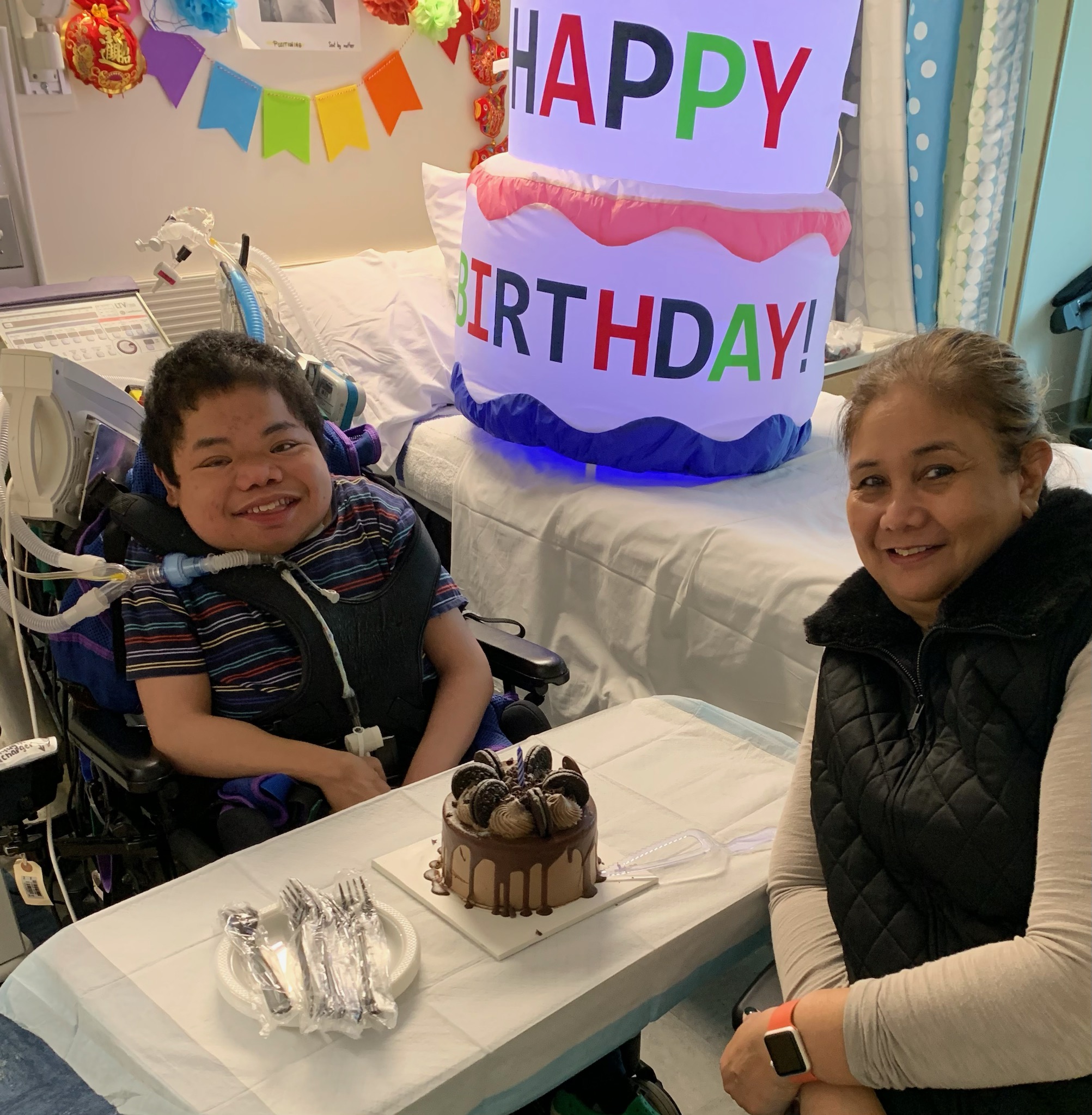My name is Helen. I am from the Empire State (New York), where I happily work and live with my husband. I have three sons, Francis, Paolo, and Matthew. My youngest son, Matthew, was diagnosed with a rare disease called Sly syndrome (MPS VII).
Matthew was born prematurely at 34 weeks with multiple health concerns that required him to have spinal cord surgery and stay in the Intensive Care Unit (ICU) for four months. After his release from the ICU, he was sent home with a pulse oximeter, a device to measure the oxygen level of the blood and some medications, but his asthma attacks required frequent trips to the emergency room and many days in the hospital. One time, we brought Matthew to the emergency room because he couldn’t move his arms and legs. Doctors examined him and did not find anything wrong with him.
“Matthew is loving and very sociable. He loves to spend time with family and friends. He has his own way of communicating with people, including his own language, which his family and very close friends have learned. Despite his current condition, he enjoys attending classes held at the hospital.”
We received Matthew’s diagnosis after a geneticist ordered genetic testing for him. He was diagnosed at 17 months with an ultra-rare disease called MPS VII, also known as Sly Syndrome. It is a genetic disorder that causes reduced function of organs such as the heart, lungs, liver, and spleen, as well as skeletal abnormalities and mental disabilities. It is considered an ultra-rare disorder because it affects fewer than 100 people in the U.S.
Since his diagnosis, Matthew has resided at St. Mary’s Hospital for Children in Queens, NY, to receive the necessary medical attention. Up until 2011, he was allowed to spend a small amount of time with family outside the hospital during the holidays. As of today, Matthew cannot leave the hospital. His health condition took a critical turn in October 2013, when he was living in the hospital and was no longer able to breathe on his own and needed the help of a respirator. As his mother, it was heartbreaking to learn that my son was no longer allowed to leave the hospital.
Matthew’s doctor advised me to take it one day at a time. And this is how I have been coping with my son’s condition. At the hospital, he has the medical care that he needs, has enjoyed taking classes, and is happy when family members and friends visit him. In 2010, at the age of nine, Matthew stopped walking. He could not walk with the support of a walker anymore, and he became a wheelchair user. Matthew currently requires the use of a ventilator 24/7. He is not able to eat orally, as it may cause aspiration, but he is being fed through a G-tube.
In October 2022, Matthew celebrated his 21st birthday. He is very social and loves to be around his family and friends, offering them his biggest smile. Matthew likes to interact with his brothers, Francis and Paolo. He is unable to verbally communicate, so he has his own way of communicating using a board with pictures. Matthew is currently taking classes at the hospital and is active and engaged in class. His quality of life right now is much better than before. He is more alert and has more energy. I’ve decided to share my son’s story to inspire others, and my hope for families living with MPS VII is to keep them hopeful and to never give up.
Written by Helen Evangelista
Mucopolysaccharidosis Type VII (MPS VII)
Learn more about mucopolysaccharidosis type VII, accessing related resources, and finding opportunities to participate in research for MPS VII.
Learn More about MPS VIIMPSinFocus
Your comprehensive resource for information about MPS VII.
Learn More about MPS VII on MPSinFocus
